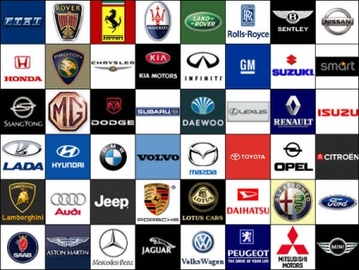Berkeley
Microcars and engines | Brand
Berkeley Cars Ltd of Biggleswade, Bedfordshire, England produced economical sporting microcars with motorcycle-derived engines from 320 CC to 690 CC and front wheel drive between 1956 and 1960.
The Berkeley automobile was a collaboration between designer Lawrence "Lawrie" Bond and the Berkeley Coachworks factory owned by Charles Panter, which at the time was one of the largest manufacturers of caravans in Europe. It was an ideal project for Berkeley, who had developed considerable skills in the use of Glass-reinforced plastic (GRP), and were looking for something to fill the gaps in the very seasonal caravan market. What Panter and Bond wanted to achieve was "something good enough to win World 750 CC races... but cheap, safe, easily repairable and pretty."
Subject ID: 1032
MoreBerkeley Cars Ltd of Biggleswade, Bedfordshire, England produced economical sporting microcars with motorcycle-derived engines from 320 CC to 690 CC and front wheel drive between 1956 and 1960.
The Berkeley automobile was a collaboration between designer Lawrence "Lawrie" Bond and the Berkeley Coachworks factory owned by Charles Panter, which at the time was one of the largest manufacturers of caravans in Europe. It was an ideal project for Berkeley, who had developed considerable skills in the use of Glass-reinforced plastic (GRP), and were looking for something to fill the gaps in the very seasonal caravan market. What Panter and Bond wanted to achieve was "something good enough to win World 750 CC races... but cheap, safe, easily repairable and pretty."
The early cars were an immediate success on the home market, and several derivative models were spawned over the four years of car production. Export markets, most notably the United States, were exploited and the cars earned a reputation for fun, if fragile, sports motoring on a budget. Recognising the threat posed by the newly introduced Mini and Austin-Healey Sprite in the late fifties, the company started to develop are a more conventional model with the support of Ford.
The caravan market collapsed towards the end of 1960, and Berkeley's poor cash flow forced the company into liquidation on 12 December 1960, taking its car manufacturing activities with it. After having produced about 4100 cars of various types, the workforce was laid off shortly before Christmas that year. An attempted sale of the company to Sharp's Commercials Ltd (manufacturer of the Bond Minicar) came to nothing, and the company's assets were liquidated in 1961.
The factory was later used, but it was demolished in 2002 and the site turned over to housing. A road named 'Berkeley Close' in the housing estate provides the only obvious link to the car factory. Today there is an active owner's club (the Berkeley Enthusiasts' Club), which provides a range of parts and services aimed at preserving the remaining few hundred cars known to survive worldwide.
Subject ID: 1032
Subject ID: 1032
